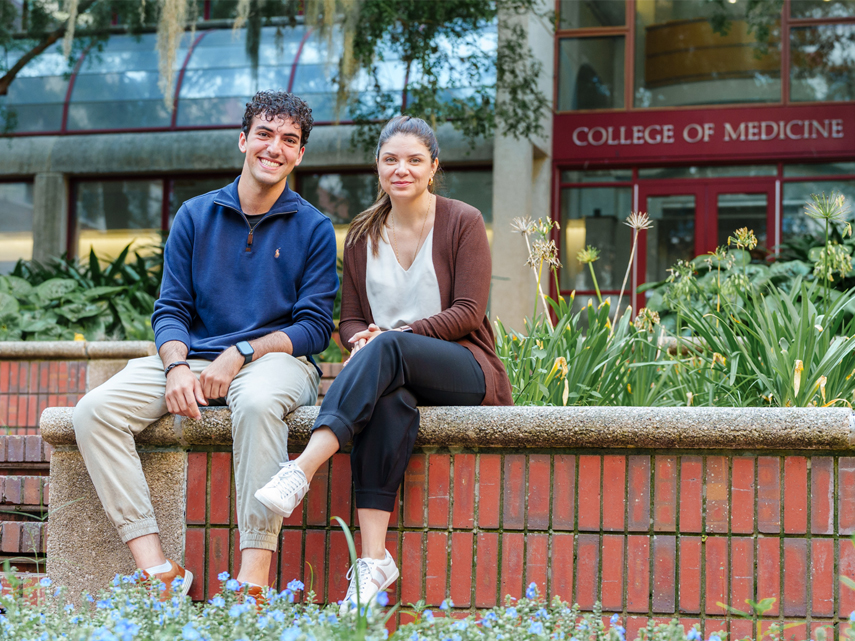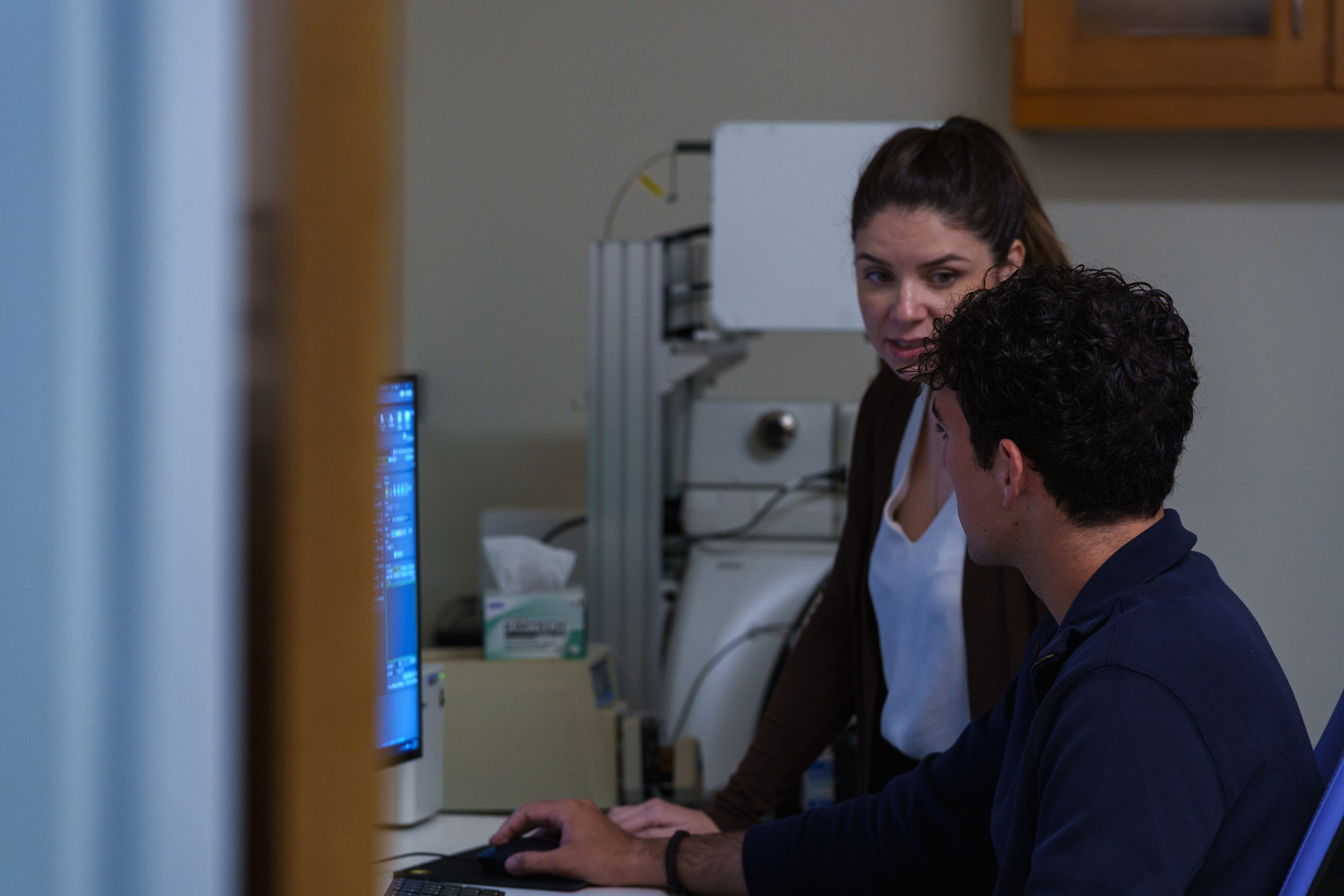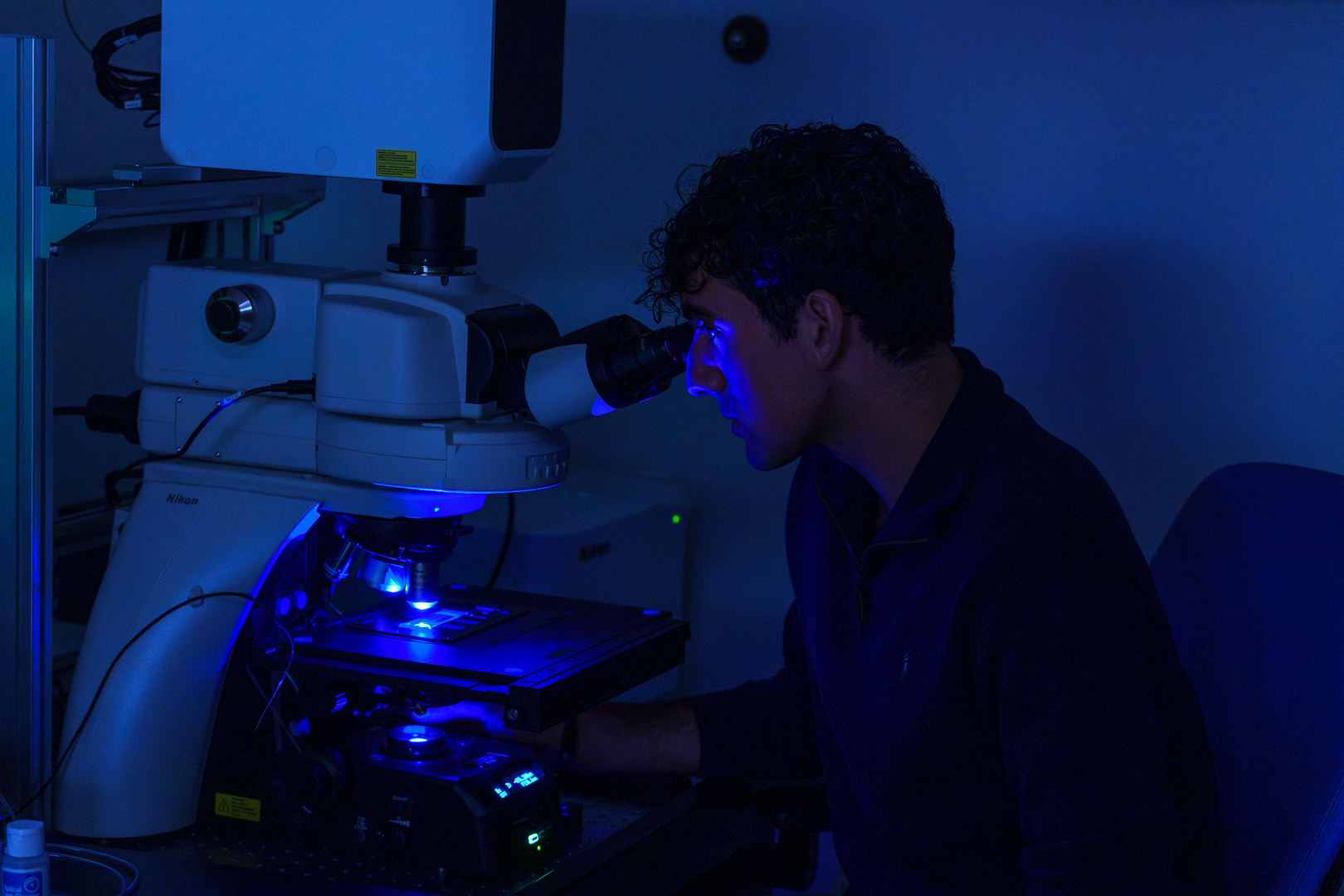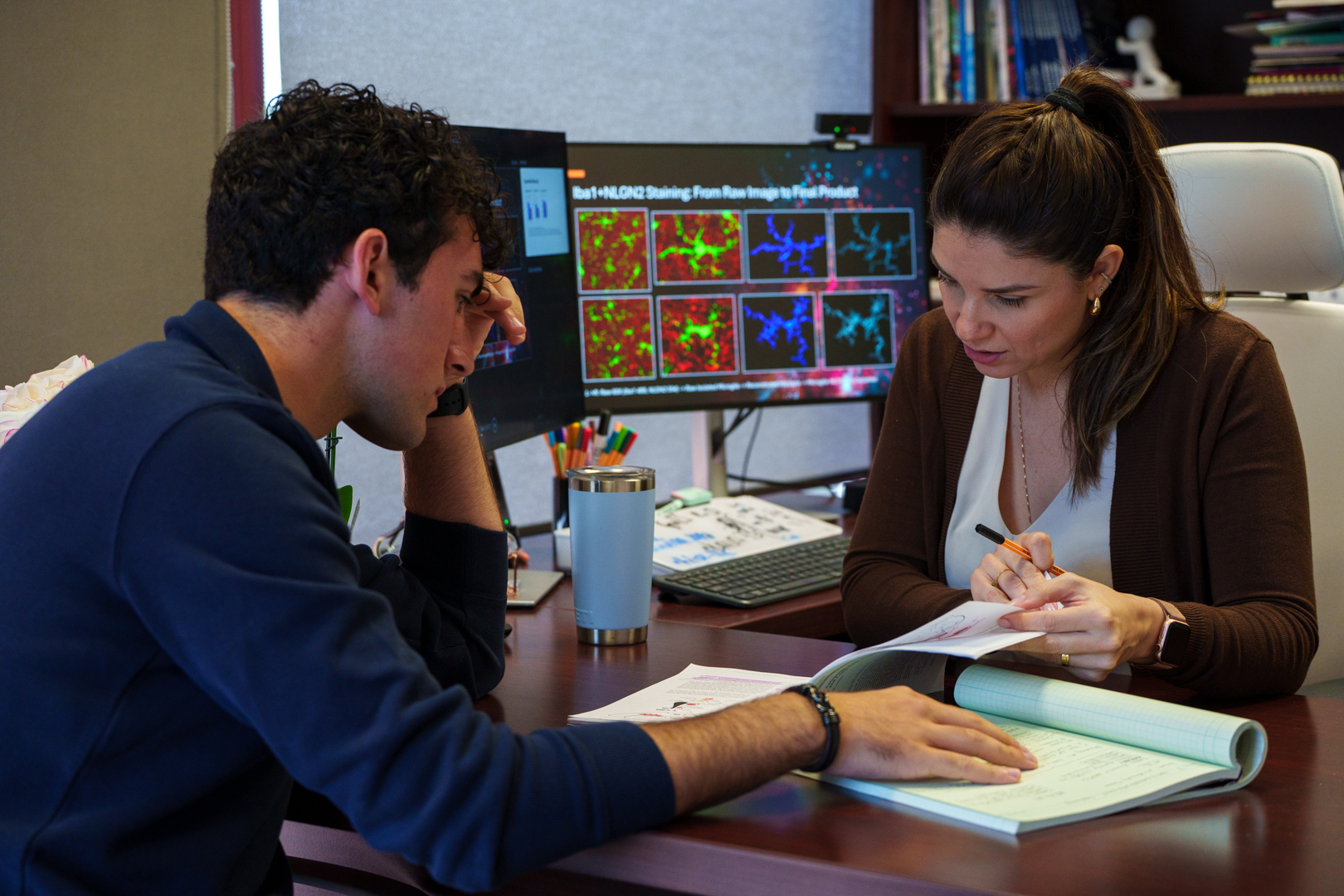Mentorship at UF
September 15, 2025
"The right mentor doesn't expect you to have all the answers; they help you ask better questions."

Sultan Khanfar and Dr. Aline Oliveira sit on a ledge in front of the College of Medicine.
What is a mentor? What does mentorship at the University of Florida look like? Is a mentor right for you? These are exciting questions to ask yourself. Regardless of the answers, know this: there are experienced individuals on campus, in your field, who are willing to share their knowledge and time with you. Often, all it takes to get started is a quick assessment of your goals and an email to someone you respect.
Let's answer that first question. Mentorship is a relationship between a mentor and a mentee. The mentor typically has significant experience in a subject that aligns with your goals. They guide their mentees and can provide connections to other individuals, opportunities, and resources. At UF, mentors can be professors, researchers, coaches, sponsors, alumni, peers, advisors, career coaches, supervisors, department chairs, and more.
To answer the other two questions, the Office of Undergraduate Education & Student Success asked Sultan Khanfar, a College of Liberal Arts & Sciences student, about his experience with mentorship at UF. If you recognize Khanfar's name, it might be because Student Success previously published articles about his prestigious award wins with the Goldwater Scholarship and the Amgen Scholars Program.
Who are your mentors at UF?

I've been very lucky to have many mentors at UF—from my organic chemistry professor, Dr. Pete Punthasee, and late physical chemistry professor, Dr. Stanton, to Dr. Andrew Bryant, who first gave me a shot in research, and Dr. Aline Oliveira, who's been my direct mentor since day one and is now my [Principal Investigator].
What was your goal with your mentor, and how have they brought you closer to it?
My goal from the beginning was to grow into a thoughtful, independent scientist—someone who not only asks big questions but also has the creativity and persistence to build the tools to answer them. Aline has brought me closer to that vision in ways I couldn't have imagined. She gives me true ownership over my projects, trusts me to make decisions, and challenges me to think critically about every result. When experiments stall or questions feel too big, she doesn't hand me easy answers; instead, she sits with me, asks the right questions, and helps me see a path forward. Through that process, I've learned not just how to do science, but how to believe in myself as a scientist.
Are there any specific benefits you have gained through mentorship?
Countless. Aside from the accolades, mentorship has shaped how I think, how I ask questions, and most importantly, how I recover from failure and carry myself in spaces I once found intimidating. It's not just about gaining skills, but also about becoming someone who understands how to use them and teach them to others.
Can you share a time when your mentor helped you navigate a difficult situation?

I missed the chance to present at the American Physiology Summit, the same national conference I had presented at the year before, because of a miscommunication with another lab. It felt like everything I had worked for that semester had fallen apart.
Aline didn't let me stay stuck in that disappointment. She reminded me that setbacks could be starting points and encouraged me to take what I had and turn it into something even stronger. The months that followed were full of trial and error as I wrestled with protocols that refused to cooperate. There were plenty of days when it felt like nothing was working, but Aline was always there, helping me rethink my results, reassuring me when progress felt impossibly slow, and reminding me why the work mattered. By the time I finally got everything to work, the semester had ended, but I knew that if I stayed just a little longer, I would have the data I needed to submit to the conference I had been hoping to share my work at for the past year. So, I stayed in Gainesville for an extra three weeks, sleeping on a friend's floor and walking an hour to the lab and back every day to bring the project to completion.
Just two days before leaving, it all came together. I finally had the results I had been chasing for months, and I submitted an abstract to Neuroscience 2025, was invited to deliver an oral presentation in the prestigious nanosymposium section, and was awarded the Trainee Professional Development Award, along with multiple travel grants that are fully funding my participation. Without Aline's mentorship, I don't think I would have had the same resilience, or the courage, to turn that setback into one of the most meaningful periods of growth in my undergraduate career.
What's a piece of advice from your mentor that has stuck with you?
One time, Aline told me, "I don't care if it's even 50 cents—we're going to apply for it." It made me laugh, but it stuck with me because it perfectly captures her mindset: treat every opportunity as valuable, no matter how small it may seem. That perspective has changed the way I approach my own goals. I've learned that progress isn't just about the big milestones—it's built from all the small, persistent steps along the way.
If your mentor were here, what would you want to thank them for?

I would thank Aline for the way she has believed in me from the very beginning. She never made me feel lesser because of my age or lack of experience, but instead guided me based on my aspirations and my willingness to learn and grow. She saw potential in me before I fully saw it in myself, and she has stayed by my side ever since to help me cultivate those passions. Her mentorship, built on trust, respect, and genuine care, has shaped the scientist I am becoming. She exemplifies what it means to be an amazing mentor, and I hope to one day become a fraction of the kind of mentor she is.
Do you have additional advice you would like to share?
Don't wait until you feel "ready" to reach out. Some of my most meaningful growth has come from times when I felt completely out of my depth. The right mentor doesn't expect you to have all the answers; they help you ask better questions. So, take the leap, even if you're unsure, because that first conversation might be the one that changes everything.
Mentorship Opportunities at UF
- Student Engagement: University Mentorship Program
- Gator Network
- CLAS Student Council: Mentorship Program
- Student Activities and Involvement: GatorConnect
- Type "Mentor" in the search bar
- Career Connections Center: Experiential Learning Dashboard
- Type "Mentor" in the search bar
- Center for Undergraduate Research: Mentee 101 Course
- Learn how to communicate with mentors in a research setting
Written by Braden Blue.
More Success Stories
Don't miss out on the latest articles by Student Success. We highlight what's great about the UF community.
